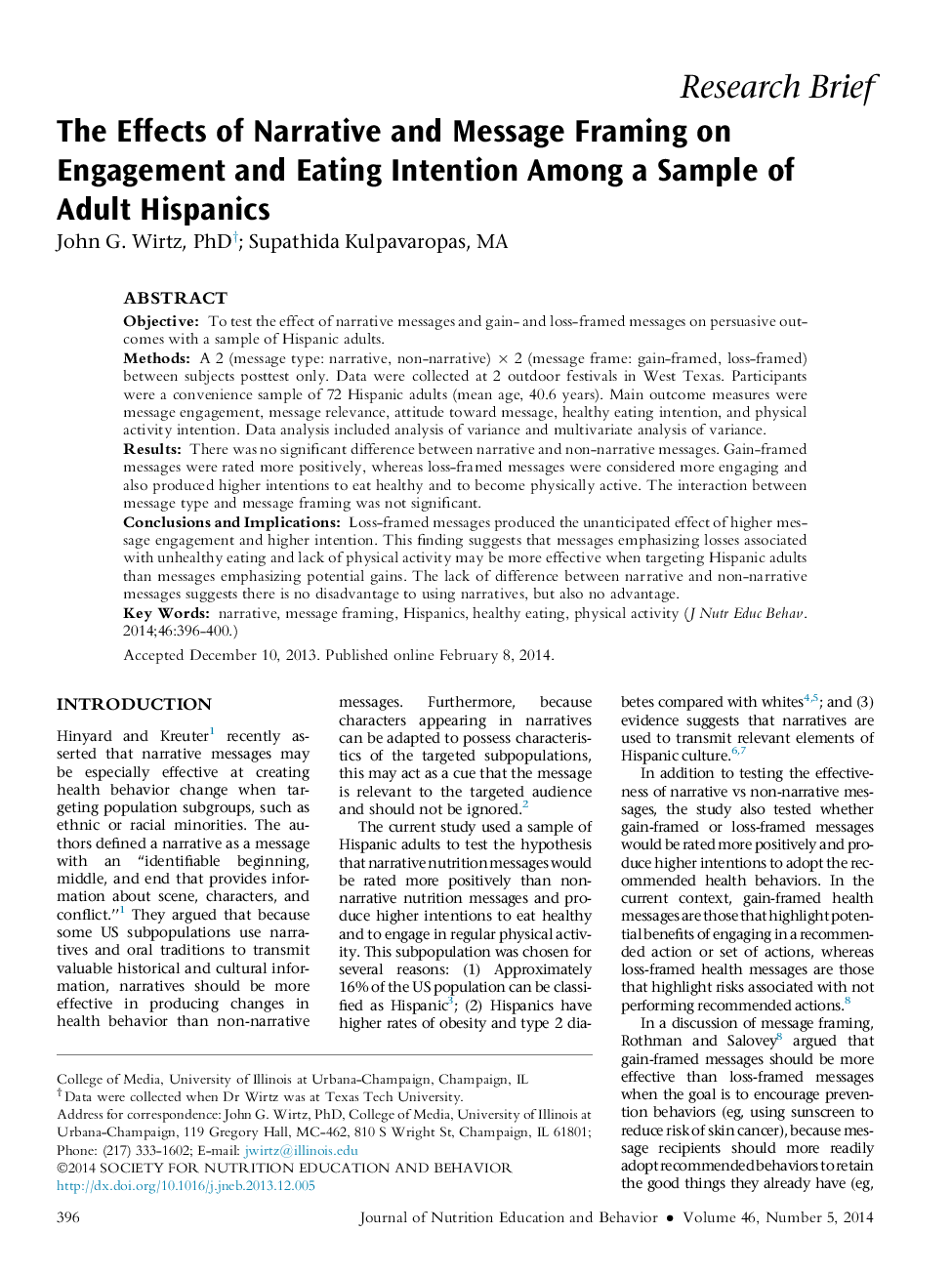| Article ID | Journal | Published Year | Pages | File Type |
|---|---|---|---|---|
| 361246 | Journal of Nutrition Education and Behavior | 2014 | 5 Pages |
ObjectiveTo test the effect of narrative messages and gain- and loss-framed messages on persuasive outcomes with a sample of Hispanic adults.MethodsA 2 (message type: narrative, non-narrative) × 2 (message frame: gain-framed, loss-framed) between subjects posttest only. Data were collected at 2 outdoor festivals in West Texas. Participants were a convenience sample of 72 Hispanic adults (mean age, 40.6 years). Main outcome measures were message engagement, message relevance, attitude toward message, healthy eating intention, and physical activity intention. Data analysis included analysis of variance and multivariate analysis of variance.ResultsThere was no significant difference between narrative and non-narrative messages. Gain-framed messages were rated more positively, whereas loss-framed messages were considered more engaging and also produced higher intentions to eat healthy and to become physically active. The interaction between message type and message framing was not significant.Conclusions and ImplicationsLoss-framed messages produced the unanticipated effect of higher message engagement and higher intention. This finding suggests that messages emphasizing losses associated with unhealthy eating and lack of physical activity may be more effective when targeting Hispanic adults than messages emphasizing potential gains. The lack of difference between narrative and non-narrative messages suggests there is no disadvantage to using narratives, but also no advantage.
